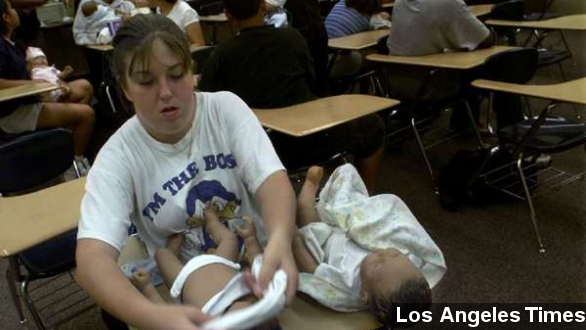Nearly half of U.S. high-schoolers have had sex, according to the Centers for Disease Control and Prevention. Still, doctors and teens spend little time talking about sex or sexuality in hospital visits.
This from a study published Monday in the journal JAMA Pediatrics. Researchers analyzed medial conversations between 253 teens and 49 physicians at 11 clinics in North Carolina and found over half of visits include some mention of sex. But the topic is discussed for 36 seconds on average. (Via Duke University)
Or in about 35 percent of cases, it was not discussed at all. It’s a sensitive topic, sure, but Stewart Alexander, who led the study, told NPR –
"They're so reluctant to interact. No teen brought up the topic themselves, even if they wanted birth control."
Another contributing factor, parents. During many visits, the parent was in the room, which could make the teen more reluctant to talk sex.
Some, like a psychiatrist with the UCLA Neuropsychiatric Institute, say the media is also sending the wrong message. “The media, through movies, TV, music and teen celebrities, tells kids that to be cool, you have to have sex, and to have it often.” (Via Everyday Health)
Also, teens just aren’t going to the doctor enough. The average amount of time a teen in this study spent with a doctor was nine minutes, and the American Academy of Pediatrics has a long list of topics for doctors to check.
That said, in 2012, it recommended pediatricians discuss emergency contraception with teens and make it more available.
According to the research, teens are more likely to discuss the topic if they are female, older and African-American. Males typically come in mostly for health maintenance visits for sports, so it’s not usually the first topic. (Via Fox News)
Despite this, a professor at the University of Maryland School of Public Health said to Time –
“Most adolescents think their physician is easy to talk to, are comfortable talking with their physician, and think their physician cares about them.”


